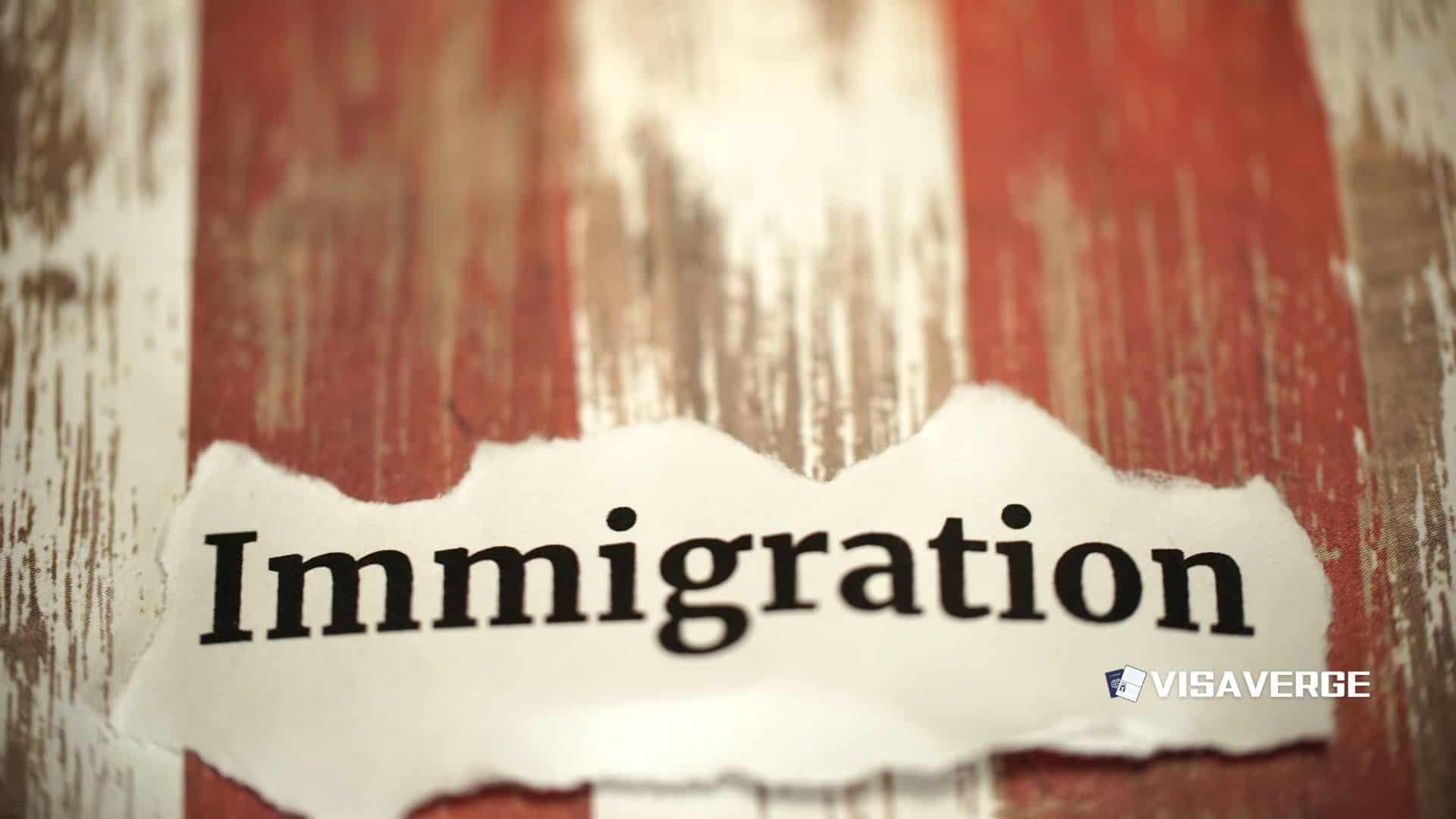(TORONTO) The ABA House of Delegates approved new policies on August 11–12, 2025, condemning federal “law firm intimidation” and backing stronger due process and detention protections in United States 🇺🇸 immigration. Meeting in Toronto, Canada 🇨🇦, the House voted to oppose government retaliation against lawyers based on whom they represent and adopted three immigration-focused measures that call for fair procedures, limits on enforcement at “sensitive locations,” and rights-protective detention standards. The votes make these positions official ABA policy, effective immediately, according to pre-meeting coverage by Canadian Lawyer and same-day reporting by the ABA Journal.
Resolutions Adopted at the 2025 Annual Meeting

Delegates considered nearly 60 policy items, but four measures drew concentrated attention because they affect how people get legal help and how agencies carry out immigration enforcement.
- Resolution 509 (law firm intimidation): The House condemned federal efforts to sanction, threaten, or retaliate against lawyers and law firms for the clients they represent or the causes they advance. The resolution stresses lawyers’ First Amendment protections and professional duties to represent clients free from government reprisal. The ABA says the government must contest cases lawfully in court, not by trying to punish a lawyer’s client list.
- Resolution 510 (immigration due process): The House urged full due process safeguards in all immigration proceedings—covering denial of entry, visa revocation, rescission of lawful permanent residence, and removal. It calls for adequate notice, access to counsel and interpreters, neutral decision-makers, meaningful review, and fair handling of cases that cite security or criminal grounds.
-
Resolution 602 (sensitive locations): Delegates urged bans on immigration enforcement in or near hospitals, schools, places of worship, public demonstrations, and public safety agencies—absent exigent circumstances. The goal is to make prior practice more durable so people can get care, go to school, or attend services without fear. For background on current federal guidance, see the Department of Homeland Security’s “Protected Areas” policy: https://www.dhs.gov/guidelines-enforcement-actions-or-near-protected-areas.
-
Resolution 603 (detention standards): The House called for detention practices that respect the U.S. Constitution and the Immigration and Nationality Act, including humane conditions, medical and mental health care, access to counsel, legal information, and independent oversight. It also encourages use of the least restrictive options when appropriate.
These policies come as the ABA continues its separate federal lawsuit, filed June 16, 2025, challenging what it calls the Administration’s “Law Firm Intimidation Policy.” The complaint in ABA v. Executive Office of the President (D.D.C.) alleges unconstitutional retaliation through executive actions that targeted specific firms—such as suspending security clearances and reviewing government contracts with firm clients—after those firms challenged administration policies.
- Just Security posted the 85-page complaint, which names about 70 agencies and officials and describes chilling effects on firms’ advocacy and pro bono work.
- On August 8, 2025, Law360 reported the Department of Justice moved to dismiss the suit, disputing standing and legal theories. The case remains pending.
Legal and Practical Impact for Firms and Families
The ABA’s stance on law firm intimidation offers institutional support for attorneys who face pressure tied to a client or cause. As a practical matter, the resolution gives the association a clear platform for:
- Filing amicus briefs.
- Making public statements.
- Testifying before Congress.
It also provides firms with language to reference in internal risk reviews and in court filings if they believe government actions target them for their representations. While not binding on courts, the policy’s focus on access to counsel and an independent bar may carry persuasive weight in matters that test the limits of executive power.
In immigration practice, the new policies give practitioners concrete tools:
- Resolution 510 may help lawyers argue for:
- Better notice and hearing schedules.
- More interpreter access.
- Fuller records for review when cases cite national security or criminal bars.
- Delegates highlighted the need for reliable access to counsel in detention, which for families could mean more consistent communication with an attorney and, in some cases, fuller hearings before life-changing decisions are made.
For people with cases pending, even small procedural steps can matter. When a lawyer files Form G-28 (Notice of Entry of Appearance as Attorney), they formally appear on the case and should receive updates from the government; the official page is https://www.uscis.gov/g-28. For those seeking protection, Form I-589 (Application for Asylum and for Withholding of Removal) remains the main filing for noncitizens who fear returning to their country; the official page is https://www.uscis.gov/i-589. The ABA’s due process policy underlines the importance of both counsel and interpreters in preparing these filings and presenting the case in court.
Sensitive Locations: Everyday Impact
The sensitive-locations policy touches everyday life and community trust. Hospitals, schools, and places of worship are central to that trust, and the House’s vote urges lawmakers and agencies to:
- Write clear rules.
- Define what counts as an emergency.
- Keep records when enforcement occurs.
That clarity could reduce fear and help families seek medical care, attend classes, and gather for faith and public events without feeling exposed.
Detention Standards: Minimizing Harm
Detention standards remain a persistent concern. The ABA calls for:
- Humane conditions.
- Medical and mental health services.
- Access to counsel and legal information.
- Independent oversight to catch and fix problems.
- Use of least restrictive options where appropriate.
For children, people with health needs, and those without criminal histories, this approach can reduce harm while still meeting enforcement goals.
Stakeholder Reactions and Next Steps
Stakeholders are watching how these policies play out. Canadian Lawyer’s preview confirmed the House’s agenda and that adoption turns resolutions into ABA policy on passage. The ABA Journal reported the House’s vote on due process protections on August 12, 2025.
Leadership changes at the meeting included:
- Michelle Behnke became ABA President, succeeding William (Bill) Bay).
- The House of Delegates, chaired by Jonathan Cole, led debate and voting.
The federal lawsuit against the Executive Office of the President will shape how far the ABA’s anti-retaliation message reaches:
- If the court allows the case to proceed, the ABA may pursue broader protections for firms not covered by other injunctions.
- If the court dismisses, the policy still stands as a marker of professional norms: represent clients without fear, and let disputes be argued in court.
According to analysis by VisaVerge.com, ABA policies are often cited in amicus briefs and agency comments but do not change federal law on their own. Real-world effect depends on agency adoption, legislation, and how judges weigh the ABA’s positions. That aligns with the House’s guidance: the resolutions set advocacy baselines and can support testimony, public comment, and litigation strategy.
For immigrants and their lawyers, the message from Toronto is plain: the ABA House of Delegates backed fair process across the life of a case, limits on enforcement where people get care and learn, and detention that respects human dignity and the law. For firms, the House drew a line against government action that punishes lawyers for who they represent.
The coming months will test both fronts—through agency decisions on sensitive-location rules and detention oversight, and through the court fight over alleged law firm intimidation.
This Article in a Nutshell
At the 2025 Toronto meeting, the ABA codified protections against law firm intimidation and strengthened immigration due process, sensitive-location limits, and detention standards, offering lawyers institutional tools and reinforcing access to counsel for vulnerable immigrants facing removal or detention in an increasingly enforcement-focused environment.








